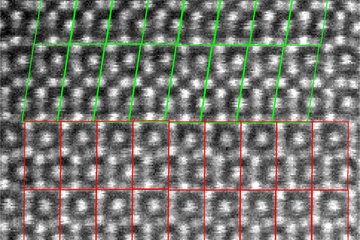All genres
1.
Journal Article
Phase stabilities and vibrational analysis of hydrogenated diamondized bilayer graphenes: A first principles investigation. Carbon 146, pp. 468 - 475 (2019)
2.
Journal Article
Stability of SnSe1-xSx solid solutions revealed by first-principles cluster expansion. Journal of Physics: Condensed Matter 30 (29), 29LT01 (2018)
3.
Journal Article
Structural models of increasing complexity for icosahedral boron carbide with compositions throughout the single-phase region from first principles. Physical Review B 97 (17), 174104 (2018)
4.
Journal Article
First-principles prediction of stabilities and instabilities of compounds and alloys in the ternary B-As-P system. Physical Review B 96 (2), 024202 (2017)
5.
Journal Article
Thermodynamic stability and properties of boron subnitrides from first principles. Physical Review B 95 (6), 064206 (2017)
6.
Journal Article
Carbon-rich icosahedral boron carbides beyond B4 C and their thermodynamic stabilities at high temperature and pressure from first principles. Physical Review B 94 (5), 054104 (2016)
7.
Journal Article
Effects of configurational disorder on the elastic properties of icosahedral boron-rich alloys based on B6O, B13C2, and B4C, and their mixing thermodynamics. The Journal of Chemical Physics 144 (13), 134503 (2016)
8.
Journal Article
Control of Ti1−xSixN nanostructure via tunable metal-ion momentum transfer during HIPIMS/DCMS co-deposition. Surface and Coatings Technology 280, pp. 174 - 184 (2015)
9.
Journal Article
Configurational order-disorder induced metal-nonmetal transition in B13C2 studied with first-principles superatom-special quasirandom structure method. Physical Review B 92 (1), 014202 (2015)











